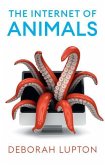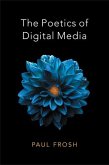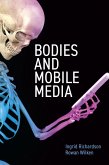The #MeToo movement created more opportunities for women to speak up about sexual assault. But we are also living in a time when "fake news" and "alternative facts" call into question the very nature of truth.
This troubling paradox is at the heart of this compelling book. The convergence of #MeToo and the crisis of post-truth is used to explore the experiences of women and people of color whose claims around issues of sexual violence are often held in doubt. Banet-Weiser and Higgins investigate how the gendered and racialized logics of "believability" are defined and contested within media culture, proposing that a mediated "economy of believability" is the context in which public bids for truth about sexual violence are made, negotiated, and authorized today.
Hinweis: Dieser Artikel kann nur an eine deutsche Lieferadresse ausgeliefert werden.
This troubling paradox is at the heart of this compelling book. The convergence of #MeToo and the crisis of post-truth is used to explore the experiences of women and people of color whose claims around issues of sexual violence are often held in doubt. Banet-Weiser and Higgins investigate how the gendered and racialized logics of "believability" are defined and contested within media culture, proposing that a mediated "economy of believability" is the context in which public bids for truth about sexual violence are made, negotiated, and authorized today.
Hinweis: Dieser Artikel kann nur an eine deutsche Lieferadresse ausgeliefert werden.
"Believability ... is an essential text for anyone interested in the problem of sexual violence, feminist politics after #MeToo, or contestations around truth in our hyper-mediated and privatised public sphere. ... [It]offers the best and most nuanced analysis of the cultural significance of #MeToo I have read ... the book is not only a crucial contribution to feminist thought, but also an important step towards reconceptualising the cultural politics of belief and truth in transformative feminist ways."
European Journal of Cultural Studies
"Banet-Weiser and Higgins's timely book presents a powerful feminist analysis of the interacting forces of belief, media and sexual violence in the post-truth era... a transdisciplinary masterpiece."
LSE Review of Books
"Carefully crafted and apt ... a must read."
CHOICE
European Journal of Cultural Studies
"Banet-Weiser and Higgins's timely book presents a powerful feminist analysis of the interacting forces of belief, media and sexual violence in the post-truth era... a transdisciplinary masterpiece."
LSE Review of Books
"Carefully crafted and apt ... a must read."
CHOICE








